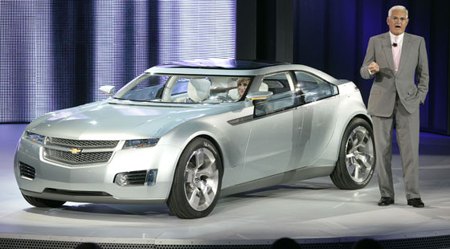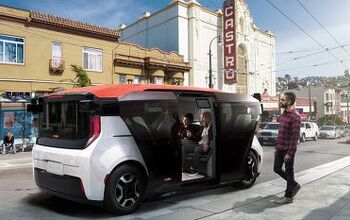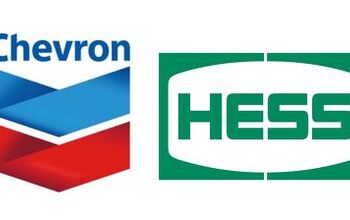Energy Bill Finagling Semi-Outed: Federal Loan Guarantees for Detroit
The majority of this morning's New York Times article on the auto-oriented provisions of the new energy bill profiles the industry's posturing, infighting and kvetching over higher Corporate Average Fuel Economy (CAFE) standards. To wit, “'We’re not whiners,' Dominique Thormann, a senior vice president at Nissan North America, said in Washington during a lunch with reporters on Wednesday, in a thinly veiled jab at competitors that originally fought fuel economy increases." Breeze through this politically correct interpretation– transplants ready to rumble, domestics foot (not to say knuckle) draggers, Toyota playing both side down the middle– and Michelle Maynard finally reveals some of the more important "details." For example, we learn that the bill offers federal loan guarantees to "help auto companies that invest in factories that are at least 20 years old to build vehicles with advanced technology." Hey! Guess what? The General will [theoretically] build the new Chevrolet Volt plug-in electric hybrid at a Detroit factory that opened in the early '80s. No word on the new "footprint-based" CAFE calculations– which make a mockery of fleet-wide fuel economy averages– or ethanol credits– capable of transforming a gas-sucking SUV into a high mileage green machine (in regulatory terms).
More by Robert Farago


































Comments
Join the conversation
I hope the prez told them no loans. What kind of BS is that? My garage is over twenty years old, can I get a low interest loan to build a car in it?
This Planet Gore blog post (part of National Review Online) has an interesting point about the CAFE legislation currently before Congress:
Underreported is the fact that the new mandate looks quite a bit different than the old, 1970-era mandate. Specifically, it protects Detroit automakers by making the 35 mpg mandate an “industry-wide” average rather than a “manufacturer fleet” average. As a result, automakers like GM – whose sales of less-fuel efficient trucks make up a larger part of their product than, say, Honda – will likely only have to meet a 32 mpg standard for all its vehicles (once NHTSA writes the final rules). Honda, meanwhile, will likely have to meet something like a a 37 mpg standard (leading to the potentiality perverse consequence of Honda paying federal fines even if its vehicle average exceeds 35 mpg!).The less efficient the government is, the better it is for consumers. With each iteration of this bill, it seems to stray further away from the goal - consuming less gasoline. At the end of this drama, the bill will look like Swiss cheese anyway. This is all just an exercise in futility and spraying perfume on a turd.